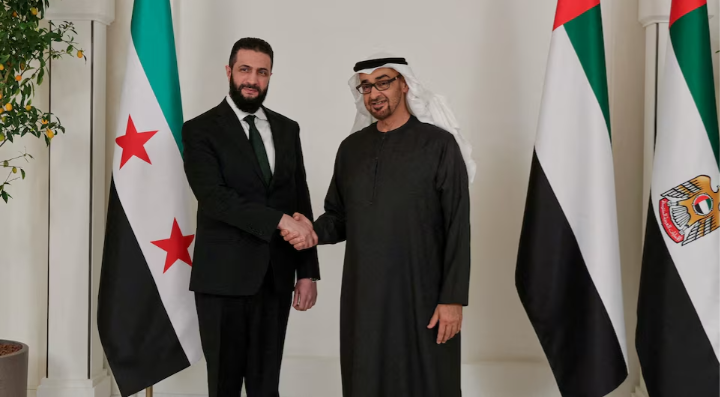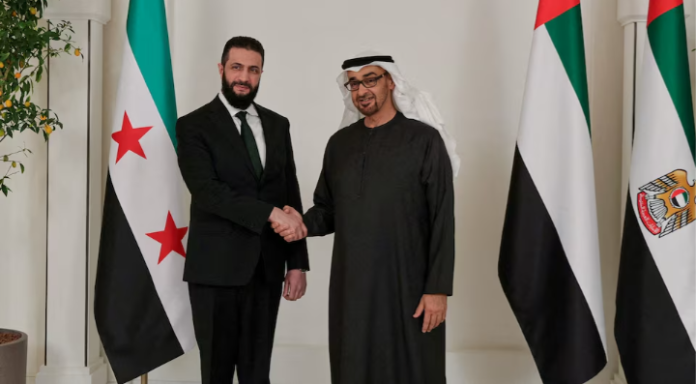In a significant diplomatic twist, the United Arab Emirates is quietly brokering indirect talks between Israel and Syria, according to sources close to the matter. This secret backchannel is emerging as a crucial move to de-escalate hostility between the two nations—longtime adversaries who currently have no formal diplomatic ties.
The covert negotiations, focused primarily on security and intelligence cooperation, were initiated shortly after Syrian President Ahmed al-Sharaa visited the UAE on April 13, 2025. Three insiders—including a Syrian security official, a regional intelligence source, and a person with direct knowledge of the talks—revealed the discussions are aimed at building trust and preventing further conflict, though they remain tightly focused on counterterrorism issues for now.
While Israeli airstrikes near the Syrian presidential palace occurred days later, it’s unclear if the backchannel has been utilized since then. The strikes, which Israel claims were a direct warning to Syria’s new leadership over threats involving the country’s Druze minority, have intensified concerns over escalating violence in the region.
Syria’s new government, having taken power after the fall of Bashar al-Assad, has been eager to show it does not pose a threat to Israel. In recent months, they’ve detained top leaders of Palestinian Islamic Jihad, reached out to the global Jewish community, and even expressed in a letter to the U.S. their intention to avoid becoming a threat to “any party, including Israel.”
The UAE’s role as mediator is particularly noteworthy due to its own normalized relations with Israel through the 2020 Abraham Accords. According to sources, UAE officials are working alongside Syrian intelligence officers and former Israeli intelligence agents to facilitate the talks. The goal: reduce mutual suspicion and avoid wider conflict in a region already on edge.
Israel has long carried out strikes in Syria to target Iranian-backed groups and Hezbollah forces. But the intensity has increased since Assad’s fall, with Israeli forces even making ground incursions in southern Syria. Tel Aviv has voiced its firm stance against any Islamist militant presence near its borders, which it views as a direct threat to its national security.

Internally, Syria remains fragile. Sectarian tensions have flared, especially between Sunni Muslims and the Druze community. A recent bout of violence, sparked by a controversial audio message, left more than two dozen people dead. The Syrian government has since reached a truce with local Druze groups in Suweida, agreeing to hire security personnel from within their ranks to ease tensions.
Despite international skepticism over President Sharaa’s past Islamist affiliations, his meeting with UAE President Sheikh Mohamed bin Zayed Al Nahyan reportedly went well, lasting several hours and easing some Emirati concerns. The diplomatic backchannel was reportedly established shortly after that meeting.
While there are no guarantees these behind-the-scenes discussions will lead to lasting peace, the involvement of a neutral mediator like the UAE offers a glimmer of hope. As both nations navigate a post-Assad regional landscape fraught with danger, the secret talks may prove to be a vital step toward stability.



